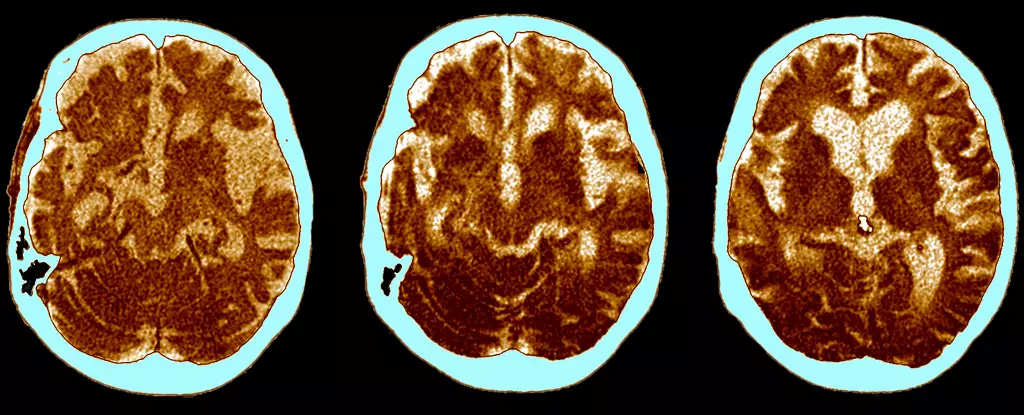Alzheimer’s disease is a devastating condition that affects millions of people worldwide, causing cognitive decline and memory loss. However, a recent study has shed light on a fascinating phenomenon – individuals who show signs of Alzheimer’s in their brains but do not display any symptoms of the disease while they were alive. This intriguing discovery may hold the key to developing new treatments for Alzheimer’s and preventing its progression.
It is known that both genetics and lifestyle factors play a crucial role in the development of Alzheimer’s disease. The study found that resilient brains had unique combinations of genes related to astrocyte cells, which are responsible for clearing waste from the brain. These resilient brains were more efficient at removing toxic proteins associated with Alzheimer’s, suggesting that they have a better defense mechanism against neurological damage. Moreover, the resilient brains showed enhanced energy production in their cells, indicating a higher level of cellular health.
The discovery of resilient brains opens up new possibilities for developing medications that target the processes involved in resilience. By understanding the molecular basis of resilience, researchers may be able to activate pathways that protect the brain from Alzheimer’s progression. With the increasing prevalence of Alzheimer’s disease globally, finding ways to enhance brain resilience could have significant implications for treatment and prevention strategies.
Despite these promising findings, there are still many challenges to overcome in the field of Alzheimer’s research. It is not yet clear how the differences in resilient brains contribute to the development of the disease, and further studies are needed to unravel this mystery. The next step for researchers is to investigate the production processes in resilient brains and identify potential drug targets that could enhance brain resilience.
The study of resilient brains offers a new perspective on Alzheimer’s disease and provides hope for future treatments. By uncovering the underlying mechanisms that protect certain individuals from cognitive decline, researchers may be able to develop innovative therapies that target brain resilience. While there is still much to learn about Alzheimer’s disease, every step towards understanding its complexities brings us closer to finding a cure. Through continued research and collaboration, we may one day crack the code of Alzheimer’s and transform the lives of millions affected by this devastating condition.


Leave a Reply